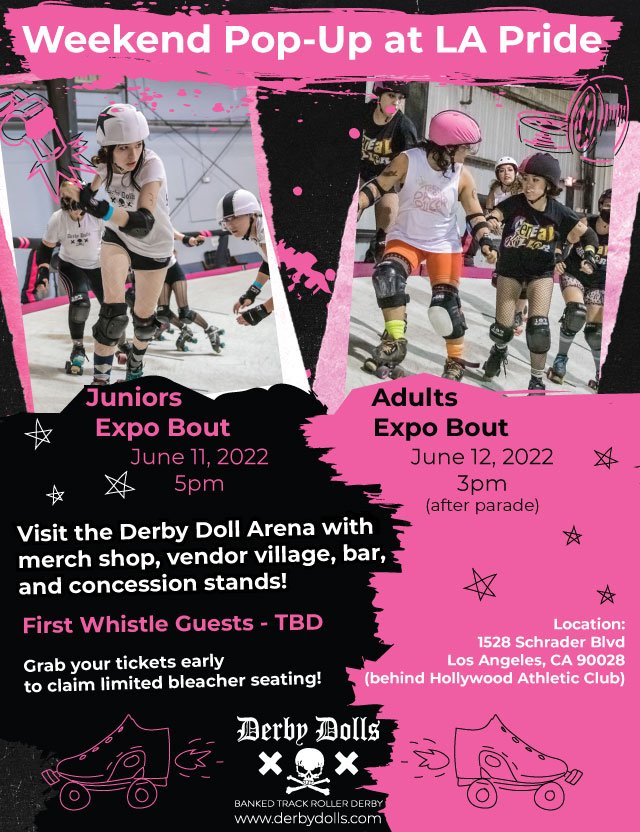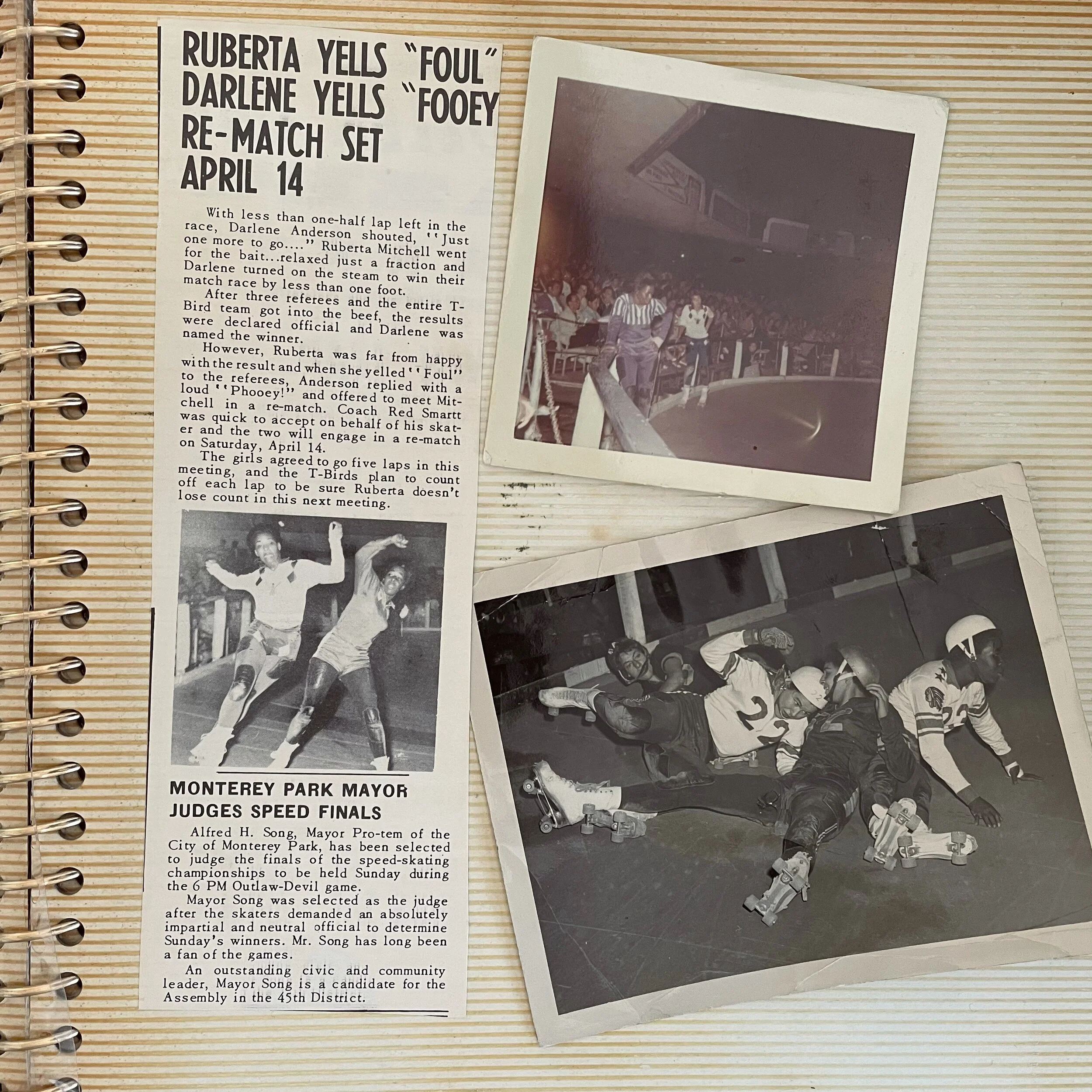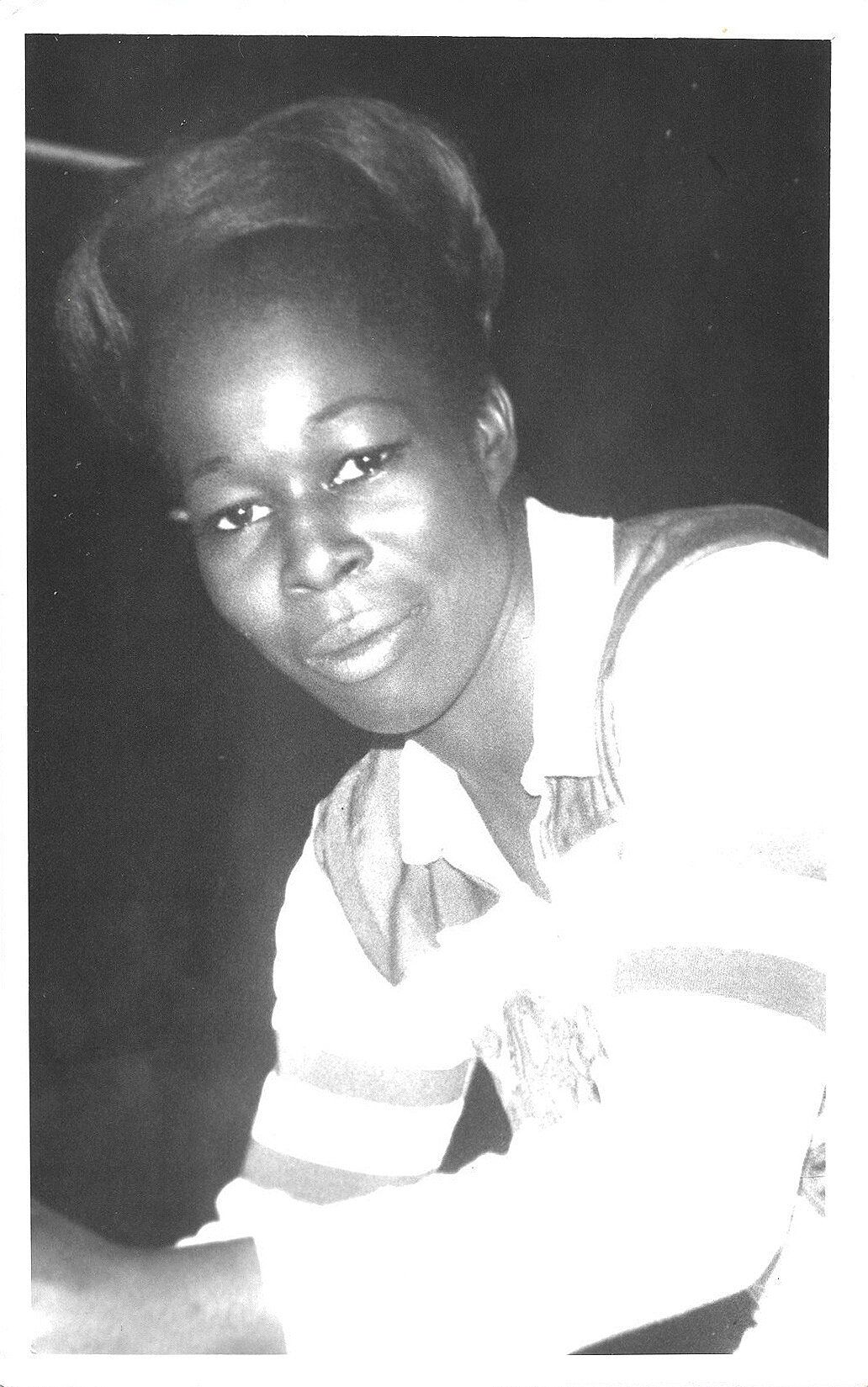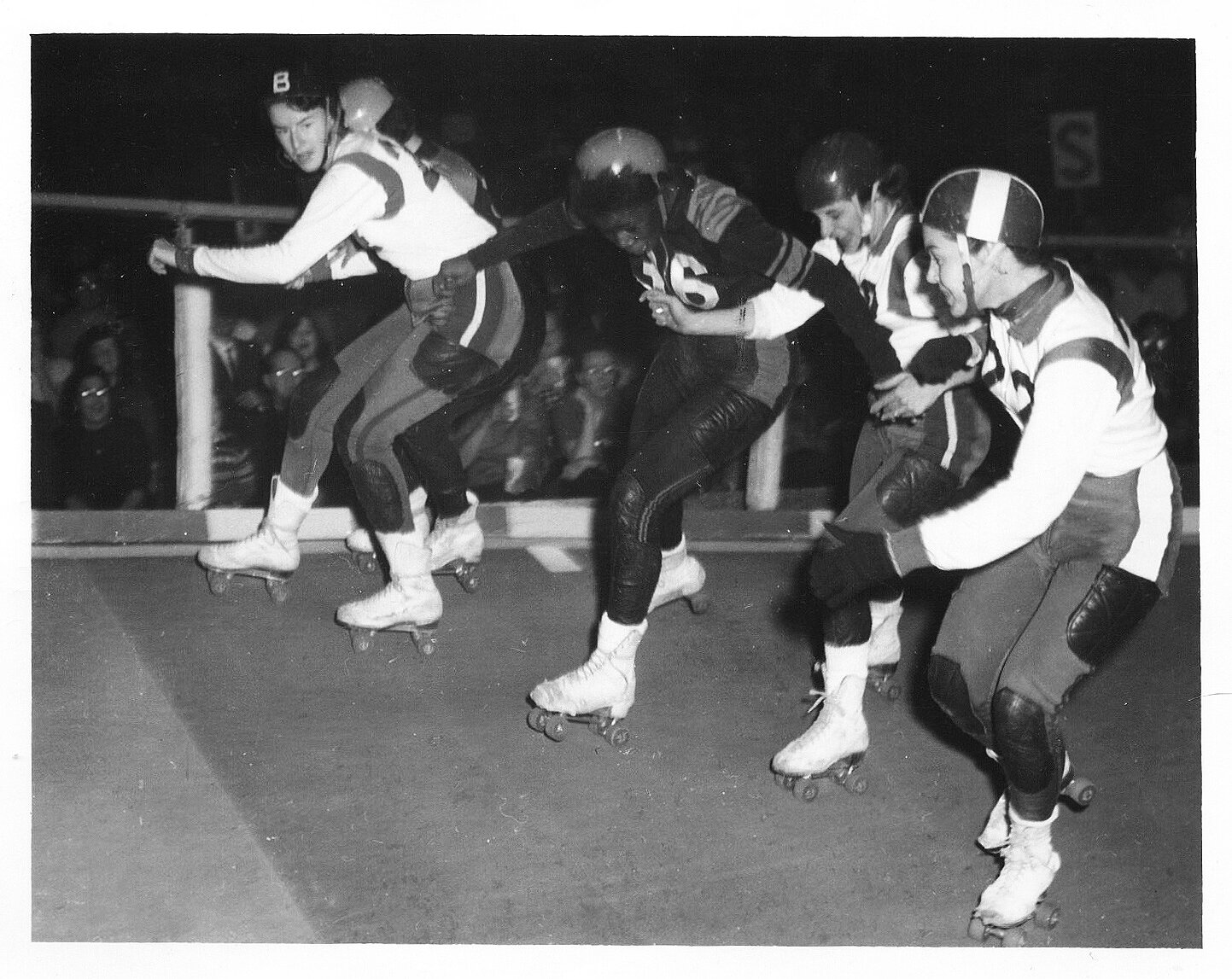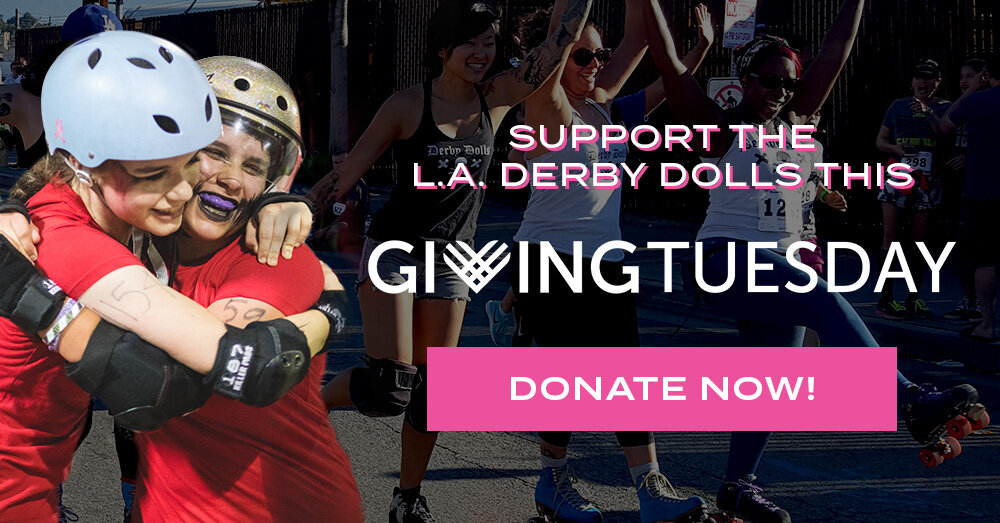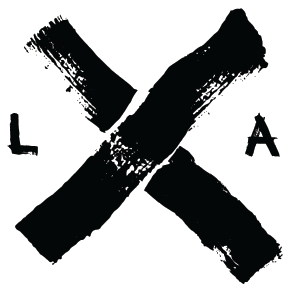Closing out Black History Month, and ringing in Women’s History Month, is Darlene Anderson. In 1957, Darlene made history by becoming the first Black woman to play professional Roller Derby. Though in truth, she didn’t set out to become the ‘first’ anything. She began a powerful legacy, and it’s long past time we honored it.
Darlene was born and raised in Pasadena, California. As one of 5 siblings, and with 3 of those siblings being older brothers, she was always quite comfortable in all athletic endeavours. While her mother was against her playing any “rough sports,” her father was more lenient, taking a “just don’t tell mom” approach to any of those “rough sports” Darlene felt inclined to play. In 1956 Roller Derby found its way into Darlene’s 16-year-old life. Four different friends, at four different points in junior high and then high school, told her about this previously unheard of sport. The first was Joan Gregory from her junior high. Darlene recalls the conversation: “Joan said, ‘Darlene, I have the sport for you! I’m too tall and have bad knees but I have the sport for you… Roller Derby!’ I had never heard of it, never seen it, and matter of fact never saw Joan again. It went in one ear and out the other. You know, Roller Derby, what’s that?”
Next came sisters, Ann and Marion George--two new students from out of town who Darlene was asked to show around their high school. They became friends in no time at all and when Darlene found out that Ann and Marion were going to attend Roller Derby training in Silverlake, they asked Darlene to join them. Much like Darlene’s mom, Ann’s and Marion’s mother didn’t approve of this type of activity, and when their mother found out she forbade them from attending any more classes. The three of them were only two weeks in, but once Ann and Marion stopped attending, Darlene had to stop as well, since Ann and Marion’s brother was the one driving them to practice.
Two weeks later, Darlene reconnected with a classmate from junior high named Joanne Brown, who quite unexpectedly asked Darlene to be her friend. At first Darlene was taken aback, since no one had ever posed that question to her before. But she figured if Joanne needed a friend then she would be that person! Soon after, Darlene told Joanne all about Roller Derby and the two of them hatched a plan. Darlene would spend the night at Joanne’s house on Fridays, then Saturday mornings they would take several busses and trolleys from Pasadena to Los Angeles to practice. “We would get up early Saturday morning, walk to the bus stop, then take the first bus to Fair Oaks & Colorado, where we would take the Greyhound into Los Angeles (which was the end of the line,) then we would walk half a block to the trolly car on 7th & Los Angeles. It would take us up to Vermont in Silver Lake. And after 4 hours of practice we would go to The Olympic Auditorium to watch the games. We did that for 8 months.” Darlene would tell her mom she was going ice skating. It was the one thing Darlene’s mom approved of and so long as she was back home on time, she was allowed to attend. “In my mind I was just doing what I liked, and getting away with it. No thoughts of ever being on a team or going professional. That wasn’t on my mind. A lot of sports weren’t challenging to me but Roller Derby was such a challenge. But I enjoyed it so much, I didn’t want to stop. And after 8 months I was put on a team, skating during halftime at The Olympic Auditorium.”
Darlene was asked to attend timed trials for The Thunderbirds and The Red Devils, and not thinking too much of it, ended up being The Brooklyn Red Devils’ first pick of two. At 16 she had become professional Roller Derby’s first Black female skater, yet she was too concerned about getting home on time to let it sink in. “I’m thinking, we gotta go get that last bus. I heard it (my name being called), but I just got up and left…I heard it and I hear it today and my reaction is still NO WAY. On the trolley car back home Joanne kept saying, ‘They called your name, they called your name!’ and I could hear her but my head was spinning and thinking, ‘Oh no, my mom can’t find out what I've been doing.’” She realized she needed to come clean. Since she was technically still a minor, she would not only need to let her parents in on the secret but also get their permission to travel with the rest of the Roller Derby team. Darlene knew her mother would not be ok with it, but she also knew her father might just side with her. She was right. When she finally told her parents, her father simply asked her, “Do you want to go?” Darlene shook her head, “yes,” and that was it. In the end, her mom even became her biggest fan.
It wasn’t long before Darlene set off to play in New York, and in 1958, at just 19 years old, she was crowned Rookie of the Year. She traveled everywhere with her teams, except the South. Although she felt safe with her teammates, segregation and racism were a real threat for Darlene, and she would be sent home while her team traveled that region. At the time she thought it was because she wasn’t a good enough player, but in later years she’d gained more clarity. “They knew I wouldn’t be able to eat with them or live with them, and they didn’t want me to go through that. I was the only Black person, and they were so nice and trying to make me at home. Even though it didn’t register [at the time] that they were trying to look out for me, they were trying to keep me safe.”
Although Darlene was excited to be doing something she loved AND getting paid for it, (yes, she was actually paid for playing Roller Derby) she struggled with the pressure and anxiety of being the first Black female skater. There were a few other Black athletes crossing the color line at the time, like Jackie Robinson and Althea Gibson, but Darlene didn’t have access to any Black mentors to help her along her journey, and she oftentimes felt alone. She didn’t know what to do with the title--she was scared, nervous, and homesick. “I wasn’t happy. I remember being in NY and I said ‘Lord, I don't want to be here. I want to go home. I didn’t ask for this.’ They were nice to me but I wasn’t happy. It’s nothing they were doing. I was just like ‘Why, why am I the first?’” Darlene credits her faith and spirituality for getting her through this tough time. She recalls one night, during her prayers, asking for guidance. “I heard, ‘I sent you’ and everything turned around. That made the difference and from that day I received all the love and the kindness. I didn't have to be afraid anymore. I was being taken care of.” And just like that, she felt a renewed purpose to embrace being the first and to blaze a trail for the next Black skaters. And that she did.
“I remember thinking, ‘I don't like my color, it’s hurtful, people call me names because of my color.’ I thought it was a negative. I had to remove that hardness, that hatefulness of this color. This color took me all over the world. Roller Derby showed me I got blessed and now to be a blessing to others. All the things that ‘the 1st’ has to endure, not for themselves but for others, was in order to change things. I gotta hang in there to let everyone behind me that wants to do this, be able to and so this is why I have to be the first. [...] Being the first is no joke. When I talked to some of the Black skaters that came after me, they would say ‘If it wasn't for you, I wouldn't be here.’ And I'm thinking, ‘Oh I never thought of it that way.’ It was kinda funny to me ‘cause I never went into Roller Derby wanting to be the first.'' She believes her faith and the serendipitous encounters with Joan, then Marion and Ann, and finally Joanne, got her to a place where she was able to be the first and travel the world playing Roller Derby.
Darlene skated with many teams over the course of her Derby career. In addition to The Brooklyn Red Devils, she also skated with The Hawaii All Stars, The San Francisco Bay Bombers, The New York Chiefs, and The Los Angeles Braves, to name a few. She retired from skating sometime in her early 30’s. She soon found a job working at another track--the race track--where she once again became a first. She was the first Black woman to be a Pari-Mutuel Clerk with the Southern California Racing Association. In fact, she was one of the first five women to be hired by the Southern California Racing Association at the time.
Darlene is now living her best life in Altadena, not too far from where she grew up. Born in 1939, this ‘Little Old Lady from Pasadena,’ is as sharp and as spry as ever. Though she may not skate anymore, she still remembers it fondly and holds the memories, the life lessons, and the friends she made through Roller Derby, close to her heart.
“Skating, the thing we enjoy doing, is an example that nothing should matter. Not your skin color, not your gender. Just enjoy skating.”


